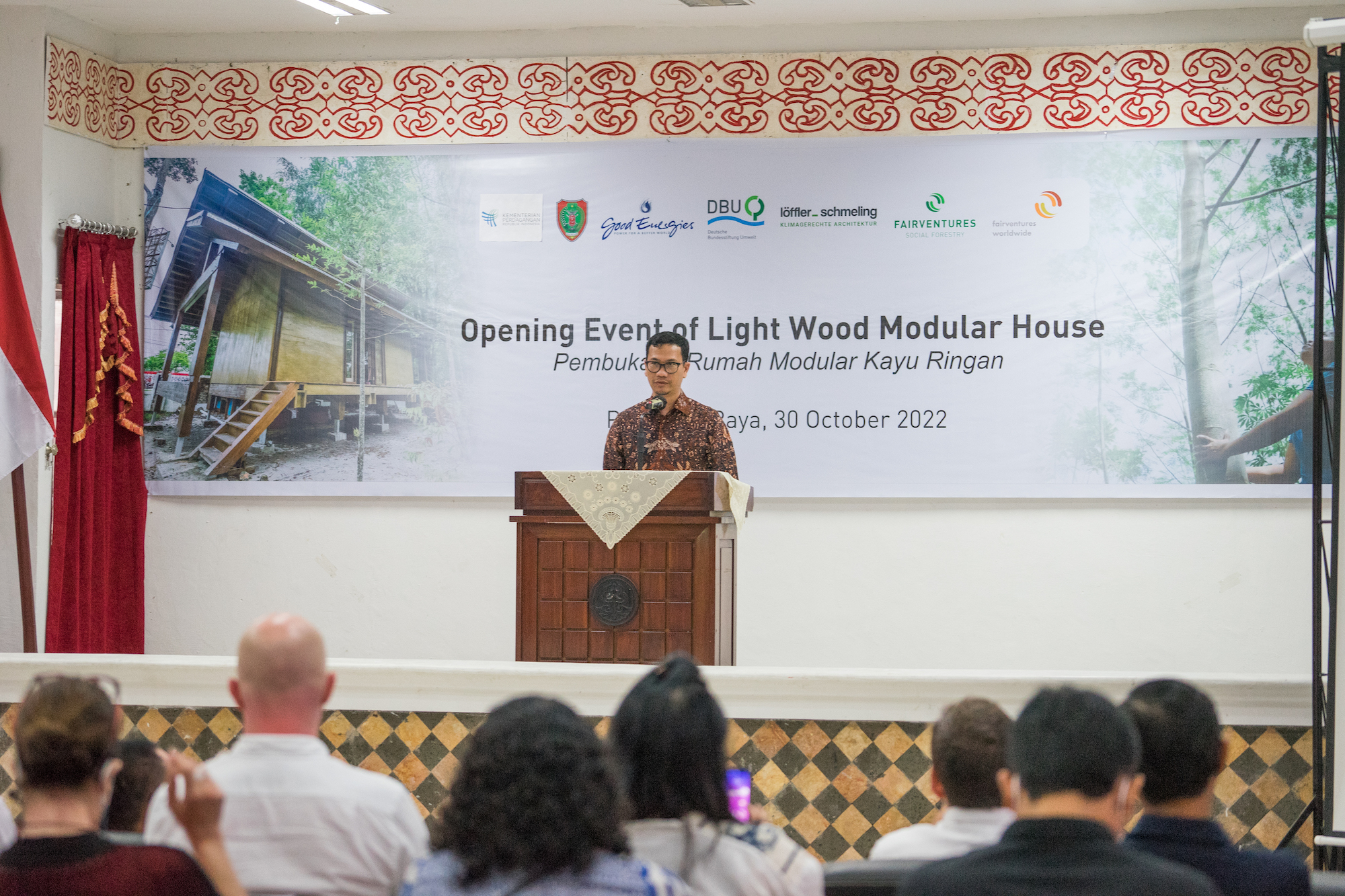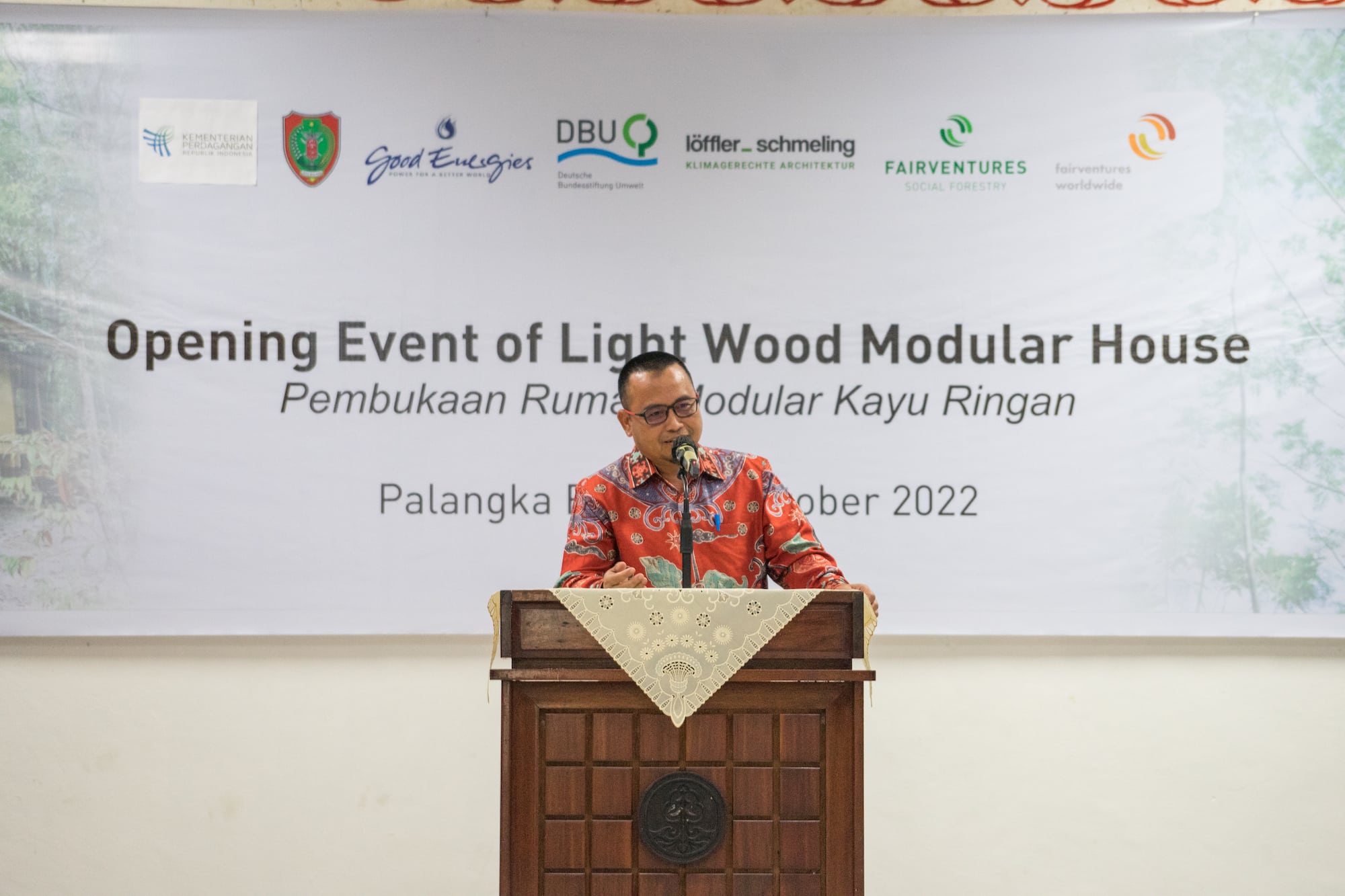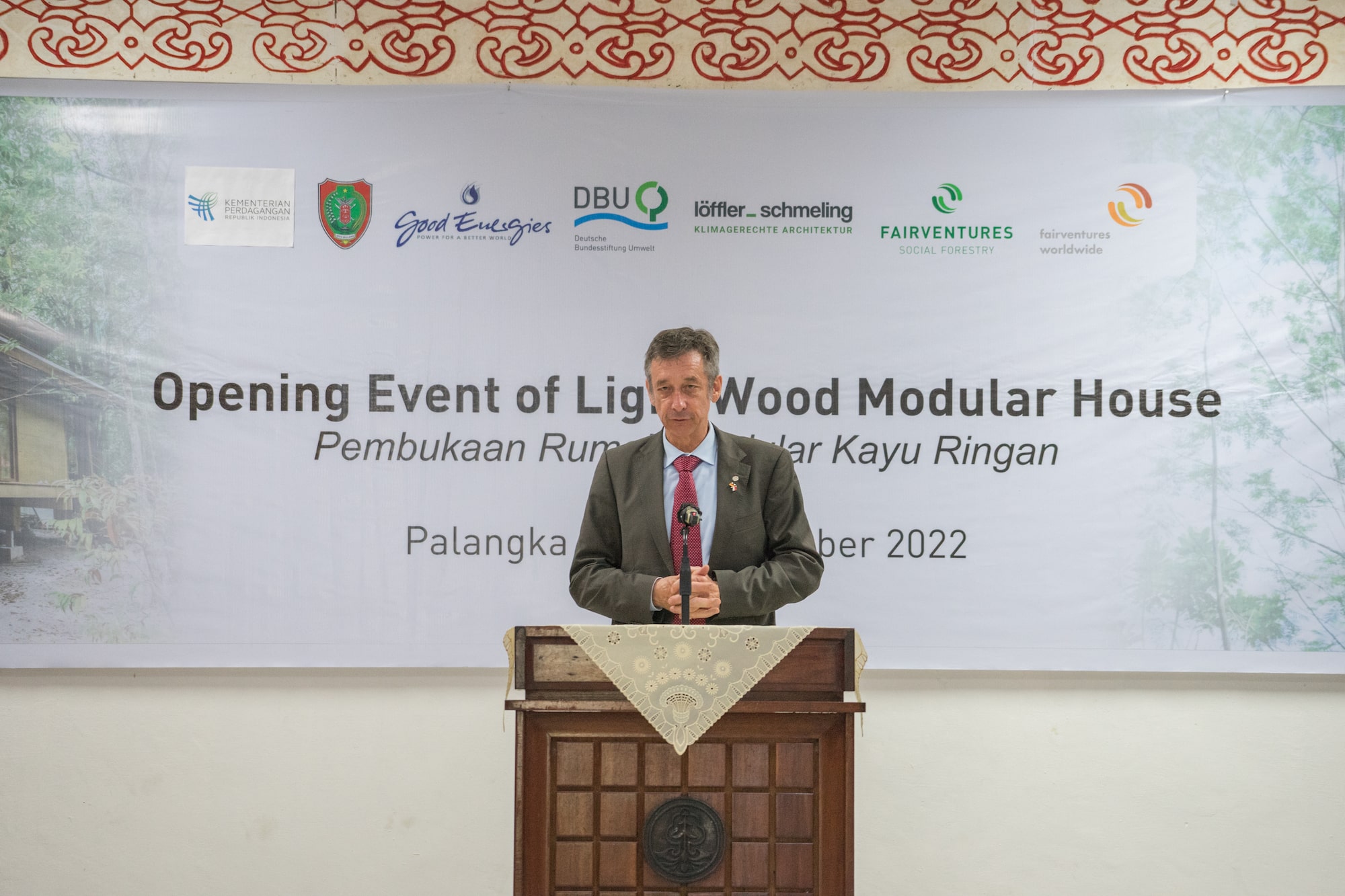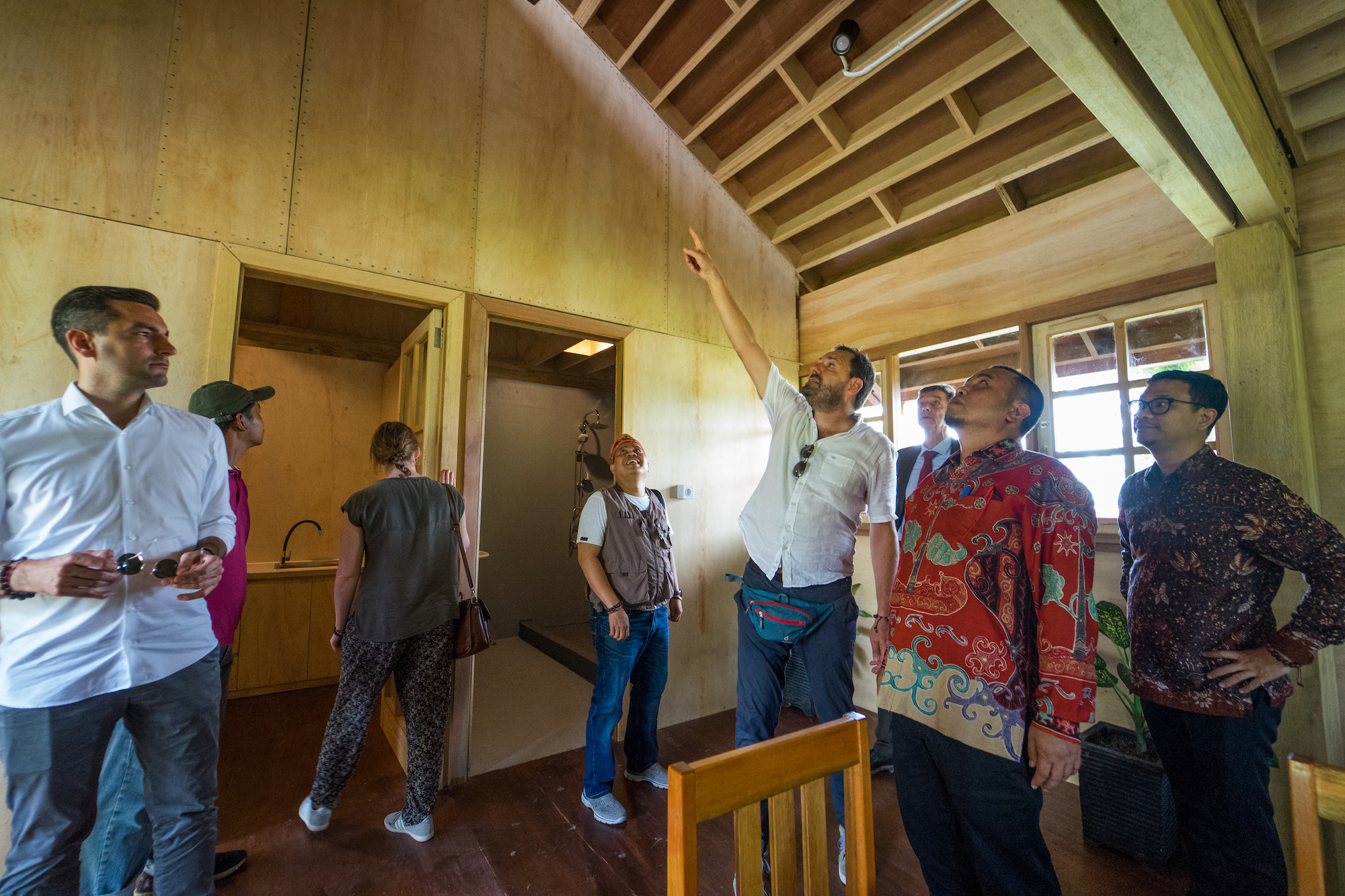
On October 30, 2022, our Indonesian colleagues inaugurated the first light wood modular house in Central Kalimantan. Several members of the German parliament joined our team for the grand opening. The completion of this pilot project marks a milestone in our efforts to ecologically transform the Indonesian construction sector.
Due to the rapid growth of the Indonesian population, the demand for housing is expected to increase by 72% until 2045. At the same time, the cost of property is rising, and affordable accommodation is increasingly hard to find. Hence, the country faces a risk of housing shortage in the near future. In addition, concrete construction, which accounts for 8% of the CO2 emissions worldwide, dominates the market in Indonesia today, alerting us of the need for an innovation in this sector that is both economically and environmentally sustainable.
Therefore, we are very glad to showcase the potential of light wood as competitive construction material by inaugurating the first ever light wood modular house in Central Kalimantan. The pilot construction located at the Provincial Forestry Office of Central Kalimantan is the result of a cooperation between Fairventures and Löffler_Schmeling architects, the Karlsruhe Institute of Technology (KIT), Blaß & Eberhart Engineers and Transsolar GmbH. It is based on timber from reforested areas and aims to solve many of the current construction sector’s problems.

The grand opening was attended by representatives of the German parliament as well as from the Indonesian Government at national and regional level and received positive feedback from all parties.
Miftah Farid, Director of Creative Services and Product Development from the Ministry of Trade, mentioned that the success of this implementation will enable further development of the lightwood industry in Indonesia in the future.

This was also echoed by Sri Suwanto, who spoke on behalf of the Governor of Central Kalimantan. “This is a great innovation and a good way to promote lightwood species. It will encourage a lot of local farmers to plant more of it.” he said.

“Full Support From The German Government”
Dr. Christoph Hoffmann, member of the German Free Democratic Party, said in his speech, “This initiative has the full support from the German government, and what we’ve seen in Central Kalimantan could be a great example of a holistic model of reforestation.”
Planned by Löffler_Schmeling Architects and built between August and September 2022 with support from the Deutsche Bundesstiftung Umwelt (DBU) and the Good Energies Foundation (GEF), the house has been constructed in a modular fashion with Sengon and Red Jabon as the main materials to offer a relatively affordable construction which could be set up fast. Indonesia is an ideal location for the development of this initiative, as the country is endowed with abundant timber resources, making the implementation of this concept feasible. Moreover, using fast-growing light wood as building material is a good way to reduce deforestation and protect timber species from primary forests that are in threat of extinction.

The benefits of having light wood in construction do not end there; a timber-based house acts as an effective long term carbon storage. Prefabricated buildings like this also contribute significantly to combating climate change because of their lower levels of waste, energy use, transportation, and operational impacts throughout the building process. We hope that this pilot project opens a new door for the development of a sustainable light wood industry in the country.